
Blog

Glamping that embodies simplicity while ensuring a restorative connection with nature, inspired by th dramatic African landscape
Glamping in East Africa – Why We Love Sleeping Under Canvas
Why We Love Sleeping Under Canvas
Falling asleep to the sounds of Africa – hippos grunting, the distant yip of jackals, and the nightjar’s call – are amplified from your glamping sanctuary making for an untamed, untouched, and unforgettable experience.
East Africa offers some of the best African travel options with diverse landscapes, national parks, and wildlife encounters unlike anywhere else in the world. While planning your tailor-made itinerary, we recommend a focus on high-end glamping that embodies simplicity while ensuring a restorative connection with nature. Inspired by this dramatic African landscape, the best of these camps are created in an innovative and exciting safari chic style with romance heightened and luxurious service key.
East Africa in all its splendour

Kenya is where safaris were first imagined and lead the way as a premier safari destination. Here endless savannah plains and scorched deserts meet snow-capped mountains, cool highlands, and equatorial forests. Annually, the country plays host to the remarkable phenomenon of the wildebeest migration during which the grasslands teem with plains game and opportunist predators. Diverse habitats offer endless opportunities for adventure, new discoveries, and relaxation. Home to the famed Maasai Mara, Laikipia, and the spectacular Great Rift Valley which runs in a series of valleys from Syria to Mozambique.

Tanzania is renowned for its vast wilderness areas including the Serengeti National Park, a safari mecca that hosts the annual migration of wildebeest and zebras. The Ngorongoro Crater is the largest intact caldera in the world and home to 30000 species of animal. For our clients looking to go off the beaten track and experience game viewing in the most spectacular settings, the lesser-known areas such as Nyerere National Park, formerly Selous Game Reserve, and Ruaha National Park are ideal. Near Arusha is Mount Kilimanjaro, Africa’s highest mountain. Offshore lie the tropical islands of Zanzibar, as well as the Pemba and Mafia islands. It truly does offer everything, and more.
Booking Details
As a leading provider of beautiful, authentic experiences in one of the world’s most celebrated wildlife regions, Glamping Africa Tours is committed to designing responsibly-led journeys across East Africa.
A stay at any of these tented camps in Kenya or Tanzania should form part of an extended East African itinerary of around 10-12 pax.
We recommend a minimum two-night stay, although strongly suggest three or four nights at each stop.
Connect with Glamping Africa Tours for additional information and for assistance with planning your handcrafted travels.

If we are to enjoy the beauty of our planet and the cultures of our people for years to come, it is our own responsibility to protect them.
Glamping in East Africa – Why We Love Sleeping Under Canvas
When we talk about travelling responsibly, the ‘carbon footprint’ of your flight might be the first thing that comes to mind. But responsible travel means so much more than this. Encompassing a vast array of environmental factors, but also social, cultural and economical ones, responsible travel is a broad concept and one we should all know a little more about. After all, if we are to enjoy the beauty of our planet and the cultures of our people for years to come, it is our own responsibility to protect them. In this article, we take a look at the meaning of travelling responsibly and share six reasons you should keep the concept in mind as you experience the world.
What Does It Mean To Travel Responsibly?
Responsible travel – also referred to as sustainable or even ethical travel – refers to a style of travel that takes into consideration the social, cultural, and environmental impacts of tourism. Still not entirely sure what we mean? The concept is perhaps best understood with a description of the term sustainability, one which takes on many meanings but which has one underlying principle we find very helpful.
According to the UN, sustainability means: “meeting the needs of the present without compromising the ability of future generations to meet their own needs”. Now whilst this, of course, relates to environmental issues, including climate change and the health of our oceans, sustainability goes further than this to cover issues rooted in society, culture and economy.
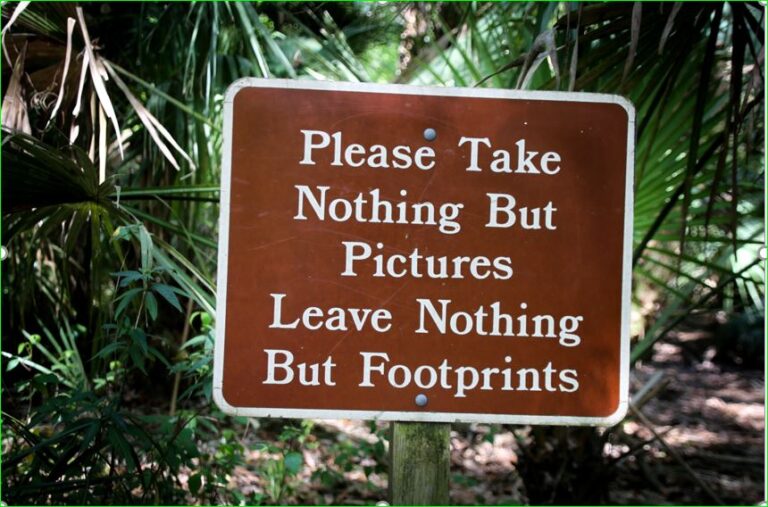
Consider for a moment not only the longevity of the planet, but also of our cultures and societies. In its full meaning, sustainability expresses the idea of looking forward to a healthy planet on which our people can thrive and maintain their own social and cultural values, practices and identities.
How Can I Travel In A Sustainable Or Responsible Manner?
So how does this relate to responsible travel? In every single way! Responsible travel involves travellers making conscious choices to minimise negative impacts, therefore leaving a neutral or even positive influence on the destinations visited. So whilst travelling responsibly does mean that you should offset the carbon for your flight and use a reusable water bottle, it also means:
– paying respect and showing understanding to host cultures
– making sensible decisions when it comes to wildlife and ecosystems
– following cultural and national rules
– paying for local services and products (and, in turn, supporting the local economy)
– educating yourself about local traditions and language
– supporting eco-certified and ethical businesses, and much more!
Reason You Should Be Travelling Responsibly
So now you know a little about responsible travel and its tight relationship with sustainability, we’re going to offer six compelling reasons you should travel with a more caring manner during your upcoming trip
1. To support the local community economically
Did you know that only $5 out of every $100 spent on package tour by those in Western countries actually ends up in the destination itself? This can be avoided. Choosing to travel in a responsible manner, means supporting local businesses. When planning a trip, you can book with a local and sustainable tour operator which favours local restaurants and other local tourism businesses. In doing so, tourists can ensure that they’re supporting the local economy and those communities involved in tourism services.
2. To reduce your carbon footprint
It’s no surprise that travel and tourism is a big culprit when it comes to CO2 production. Your flight, other transport methods and generally a more wasteful attitude on a holiday can result in a great deal of CO2 emissions during a trip. However, when you take on a responsible travel mindset, you can remain conscious of your carbon footprint and act accordingly whether that’s offsetting yours, reducing it (or ideally both).

3. To reduce your impact on the local environment
Although there are numerous environmental problems to consider when travelling, plastic has been a hot topic in recent years, with destinations worldwide suffering from single-use plastic use. In destinations such as Bali, photos in the media have been shared, portraying horrific scenes where plastic pollution chokes rivers and is washed up on beaches. Even though we might have begun reducing our plastic consumption at home, when we travel, this can go out the window as we purchase water bottles, coffees, cutlery, packaging and more.
In East African countries, including Kenya, Rwanda, and Uganda, plastic bag bans have been implemented in recent years, helping to reduce plastic pollution in the region. Rwanda started the trend in 2008, with a strictly enforced ban that has greatly reduced dependence on plastic.
However, environmentalists rightly agree that much more needs to be done. Heading on a trip? With a little more planning and consideration, you can help to reduce the amount of plastic you send to landfill (or the beach) in your destination.
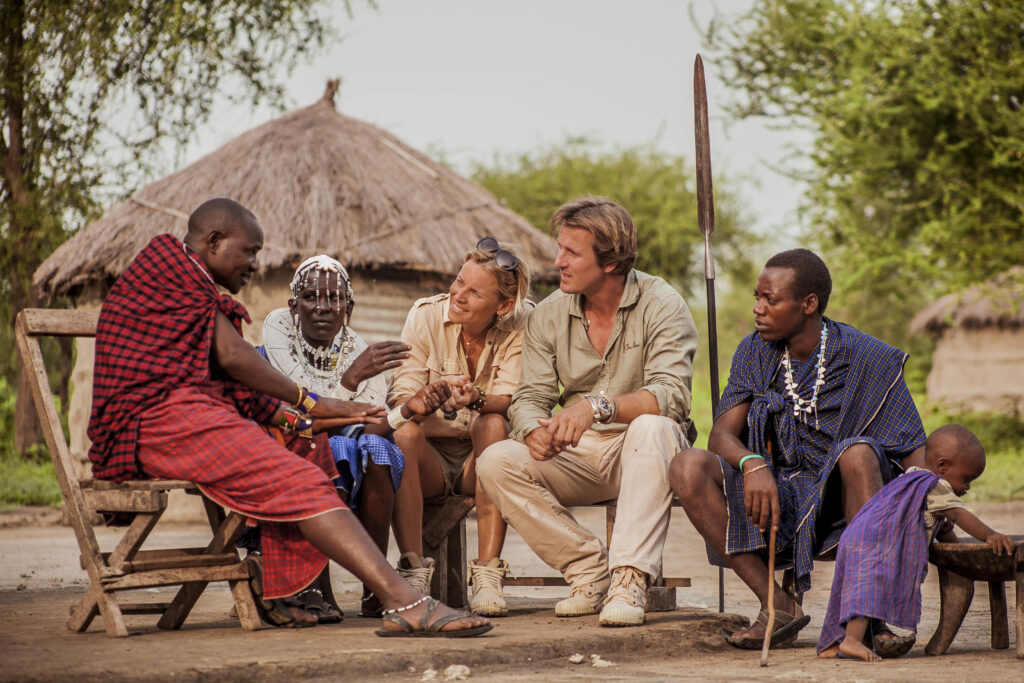
4. To preserve the local culture
By embracing responsible travel practices, travellers actively contribute to the preservation and celebration of cultural diversity and heritage, keeping it alive for the world to see. Instead of visiting a place only for its beaches and bars, paying a visit to a cultural site or involving yourself in a cultural experience can help to show your respect, and keep cultural traditions alive.
5. To educate yourself
One of the reasons many people travel is to learn. Travelling expands our knowledge, fosters empathy, and cultivates cultural understanding. It exposes us to different cultures, allowing us to learn from their history, and engage in cultural exchange. But most importantly, travel helps us to challenge our stereotypes, and develop a global perspective, offering us a chance to step outside of our own perspective. By embracing new experiences and interacting with diverse communities, personal growth is possible, as is a step towards a more inclusive and tolerant world.
6. To have a better travel experience
Plus, responsible travel focuses on creating enjoyable and memorable journeys, making real connections with people and learning more about; thus offering you longer lasting takeaways. By adopting sustainable practices, supporting local businesses, and engaging in cultural exchange, responsible travel can enrich our adventures and provide a deeper connection to the places we visit.
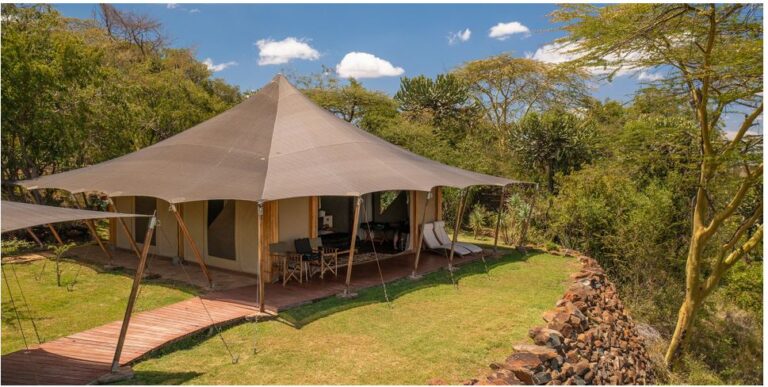
Learn more about Glamping Africa Tours here.
Got a question? Email us here: sales@glampingafricatours.com or call/ Whatsapp +254 748 321 285

Always Fun. Always Memorable
Glamping in East Africa – Why We Love Sleeping Under Canvas
Travelling with family is always on point for fun, memories and life experiences.
Here are a few tips to help me get the best from your family trip
Planning and Travel
Choose the right destination
East Africa is home to some of the most amazing wildlife in the world, so you’ll have plenty of options to choose from. Some popular destinations for glamping with families include the Masai Mara National Reserve in Kenya, the Serengeti National Park in Tanzania, and the Kruger National Park in South Africa.
Consider the time of year.
The best time to go glamping in East Africa is during the dry season, which runs from June to October. During this time, the animals are more active and easier to see.
Book your accommodation early.
Glamping is a popular activity in East Africa, so it’s essential to book your accommodation early, especially if you’re travelling during peak season.
Pack the essentials.
In addition to your regular camping gear, be sure to pack plenty of sunscreen, insect repellent, and a hat. You may also want to pack a pair of binoculars for wildlife watching.
Be prepared for anything.
The weather in East Africa can be unpredictable, so be prepared for anything. Pack clothes for both hot and cold weather, as well as rain gear.
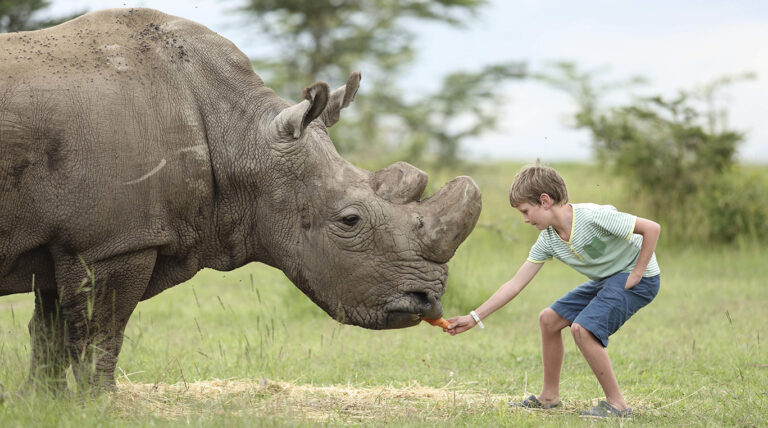
Having Fun and Enjoying Yourself
Get involved in the activities.
Don’t just sit back and relax during your glamping trip. Get involved in the activities, such as game drives, bush walks, and cultural experiences. This is a great way to learn about the wildlife and culture of East Africa.
Make time for fun.
Don’t forget to make time for fun activities, such as swimming, playing games, and telling stories. This is a great way to bond with your family and create lasting memories.
Be patient.
Glamping can be a challenging experience, especially for young children. Be patient with your family and be prepared for things not to go according to plan.
Stay safe.
When glamping in East Africa, it’s important to be aware of the dangers of wildlife. Be sure to follow the advice of your guide and never approach any animals.
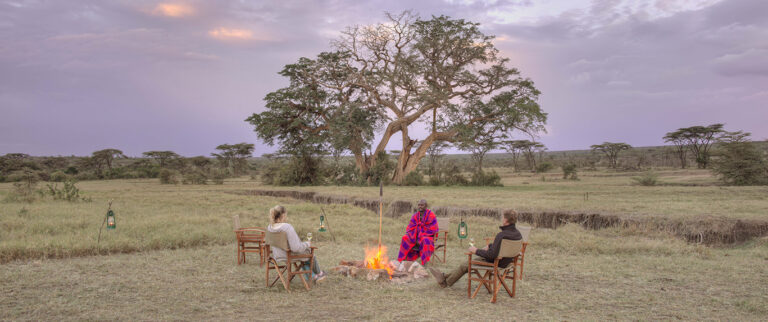
You can make your glamping experience more memorable by:
– Bringing along a telescope or binoculars so you can get a closer look at the wildlife.
– Playing games like charades or bingo around the campfire.
– Having a talent show or sing-along.
– Going on a night safari to see the animals at night.
– Learning how to make traditional African crafts.
– Visiting a local village and learn about the culture.
Learn more about Glamping Africa Tours here.
Got a question? Email us here: sales@glampingafricatours.com or call/ Whatsapp +254 748 321 285









